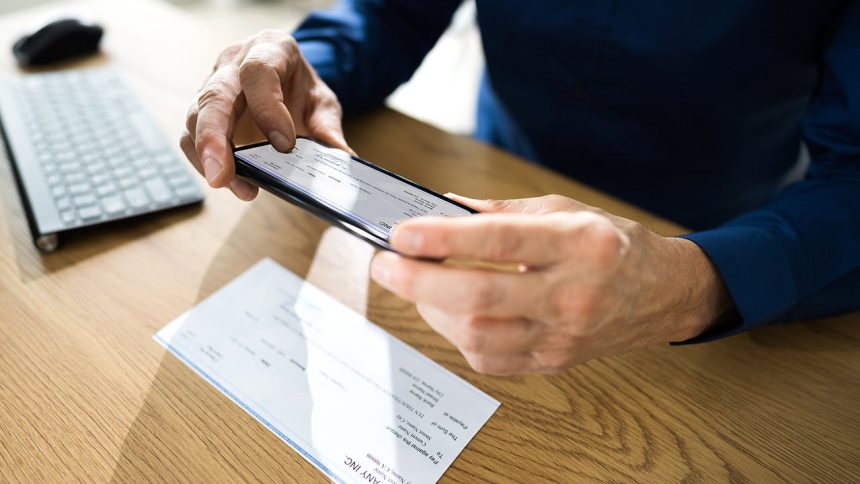Checks are not made to be held onto for too long. Many banks place limits on how long they’ll accept checks for after being signed, though that amount of time varies depending on several factors, including the bank’s policies and the type of check.
Key takeaways
- Checks are typically only valid for six months after being signed.
- Banks may still accept a stale check, but they are not required to if they have reason to doubt the funds.
- Different types of checks have different expiration dates.
- It is important to cash or deposit checks promptly to avoid fees or potential issues.
How long is a check good for?
Banks don’t have to accept checks that are more than six months (180 days) old. That’s according to the Uniform Commercial Code (UCC), a set of laws governing commercial exchanges, including checks.
After those six months — or longer, depending on the specific bank’s policy — the check is considered stale, making it no longer valid.
Banks are still allowed to process a stale check as long as the institution deems the funds are good. A Federal Reserve regulation says a bank doesn’t have to deposit a check if it has reason to doubt that it’ll be able to collect the money from the paying bank.
The rules are a bit different for certified checks, U.S. Treasury checks and money orders.
How long are different types of checks good for?
Different types of checks are valid for different amounts of time.
- Certified checks: The UCC guidelines that allow banks to deny checks after six months don’t apply to certified checks. But a certified check that sits for too long may be subject to state abandoned property laws.
- Government-issued checks: Checks issued by the U.S. Treasury (such as federal tax refund checks) are void one year after the issue date. The Internal Revenue Service needs to reissue the check if it has been sitting around for longer than a year.
- Money orders: Money orders don’t go stale, but cashing one late might cost you. The company that issued the money order could charge a nonrefundable fee that’s taken from the total amount if you don’t cash the money order within one to three years.
What to do if you have a dated check
Though you want to avoid letting a check go out of date, there are some important considerations for a check that has become outdated.
Watch out for ‘deposit item returned’ fee
If you try cashing old checks that bounce, the bank may charge a “deposit item returned” fee. The fee varies from bank to bank.
Santander Bank, for example, charges $0 a check, while at Bank of America, the fee is $12. The fee might even be higher for international checks. Plus, the person who wrote the bounced check might be charged a nonsufficient funds fee.
If the stale check is a nominal amount that doesn’t surpass the returned-check fee, and you’re unable to contact the check writer for a new check or to make sure their account is still active, your best bet may be to forfeit the check and chalk it up to a learning experience.
You may be able to cash voided checks
The writer of your stale check may have specified “void after 90 days” or something similar on the check when it was issued to you, but it doesn’t necessarily mean your bank won’t cash the check after that period.
A court decision in the case of Aliaga Medical Center S.C. v. Harris Bank N.A. ruled that banks can retrieve funds after the issuer’s requested void period unless that person specifically instructed the bank not to honor the check after that time frame.
Before cashing a check after the requested time frame, consider the reason for the payer’s request. It might be the case that they’re living on fixed income and won’t have the funds available after the specified time frame. You may end up getting charged a deposit item return fee if that’s the case.
Give the check writer a heads-up
Someone who wrote a personal check is probably not prepared for the hit their checking account balance will take if you cash it months later.
Be considerate — call or text the payer to let them know your intent. Make sure to also double-check that they haven’t switched financial institutions or opened a new account.
If the check is older than your financial institution’s time frame for cashing checks, it may be easier to ask the payer to write a new check. Asking for an up-to-date check can save you time at the teller’s desk and help you avoid paying bank fees.
Bottom line
Cashing a check promptly ensures that you can access the funds without issues, such as the check bouncing or having it go stale. If you ever come across an old check, the best option might be to contact the issuing bank or the check’s issuer to determine its current status.
It’s also a good idea to monitor your account and keep an eye out for outstanding checks that you’ve written. That way, you’re not only aware of your financial standing, but also shielding yourself from issuing a check when there aren’t sufficient funds to cover it.
–Staff writer René Bennett and Marcos Cabello contributed to this article.
Read the full article here
















